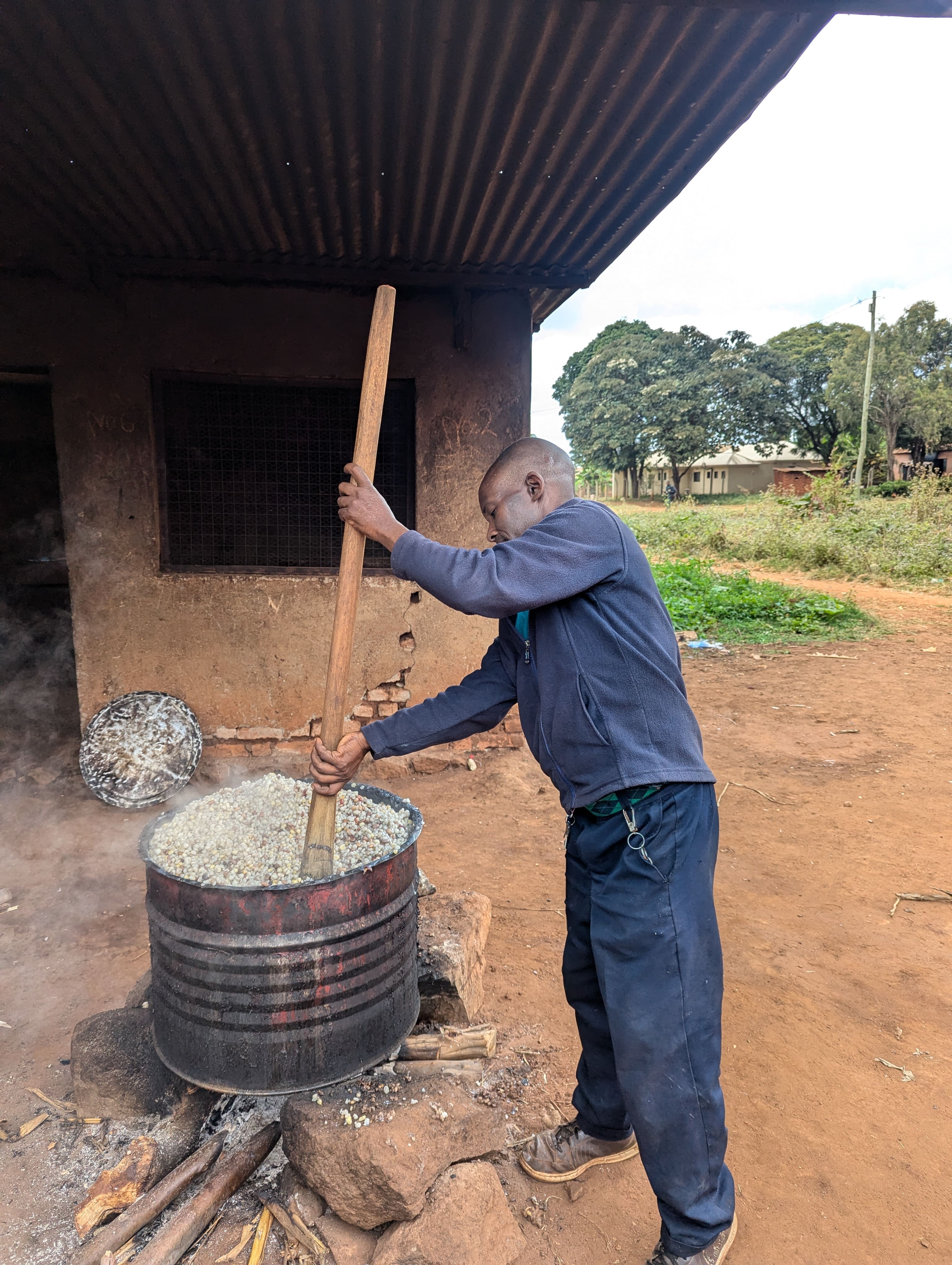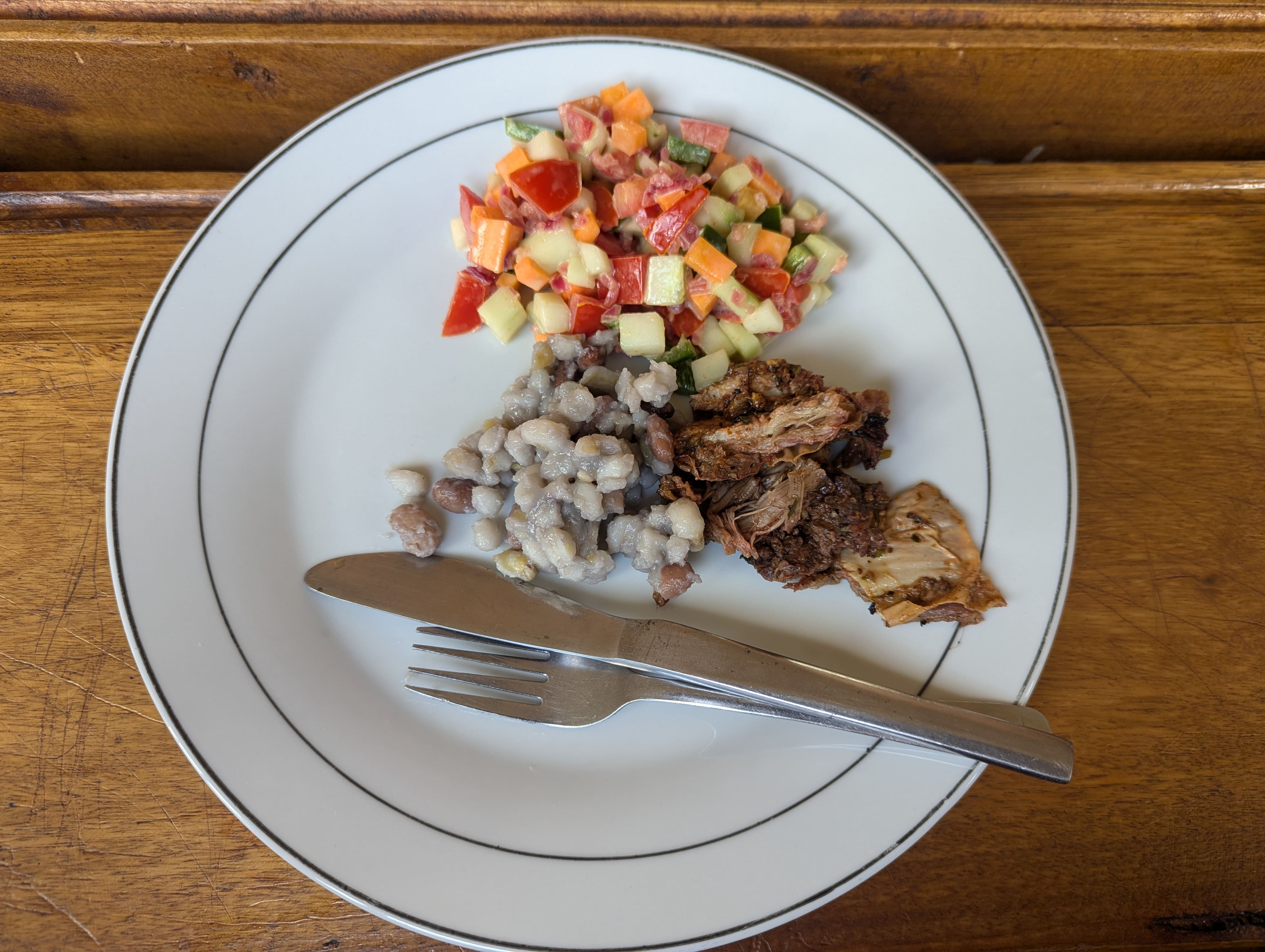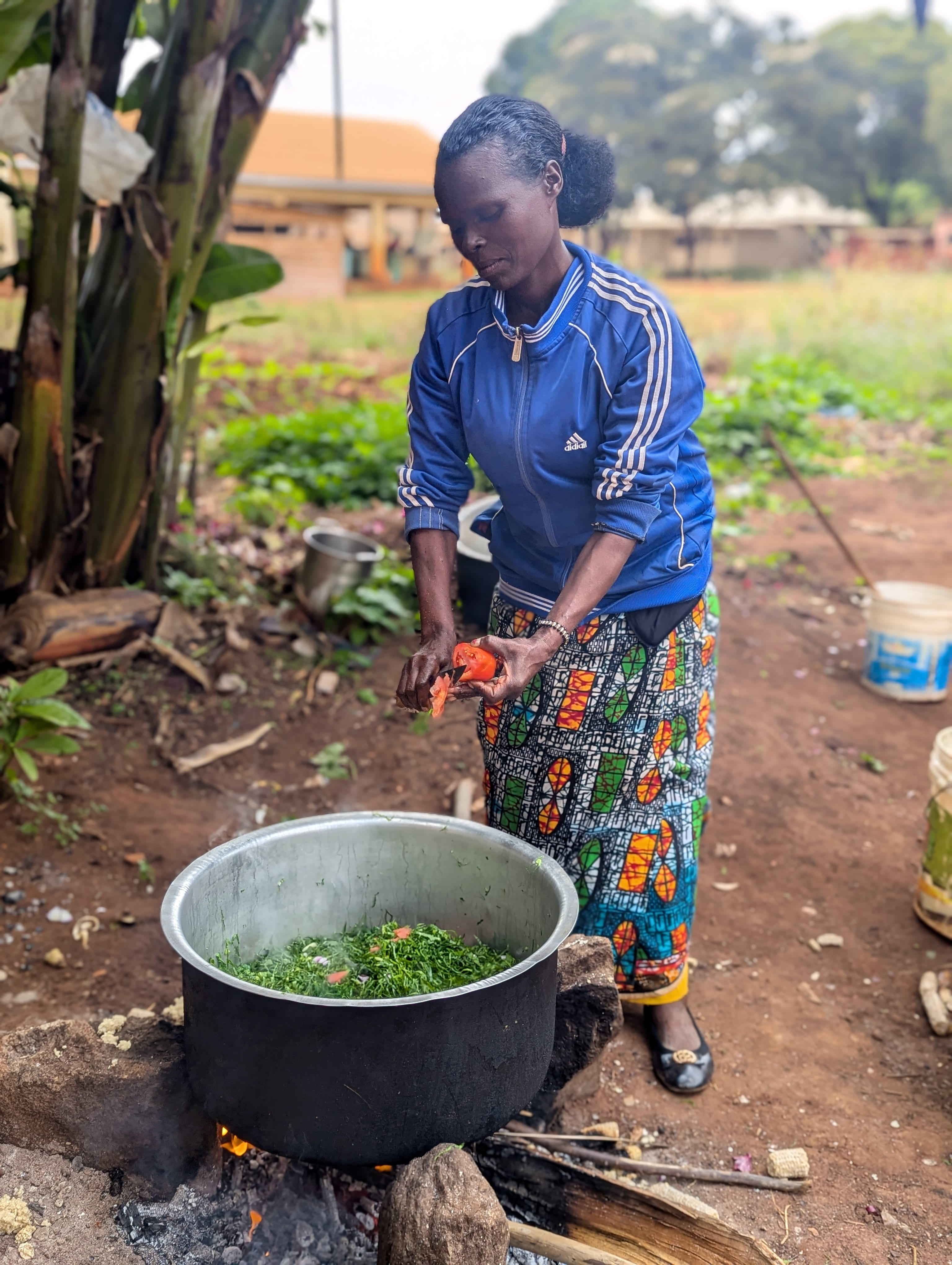School Lunch
Healthy, well-nourished children are better able to learn at school and attend classes more often. A school meal can act as a magnet to draw children to class. However, some parents forbid their children from eating school meals for fear of witchcraft, which is an important part of many tribal cultures in Tanzania, especially in rural or poorer areas.
In the area where Karimu works, many children came to school without breakfast and attended school until mid-afternoon without any other meal. Children who walked home for lunch did not always return for afternoon classes.
This cultural aspect was one of the many obstacles that Karimu had to overcome in order to serve lunch at school. With the advice of the government, which promotes school lunches, and the influence of the Church, which discredits many of these beliefs, Karimu managed, over many years, to change parents' views on children eating outside of the home.
Nowadays, every school has a kitchen, many of them still a small wood shack with open fire.
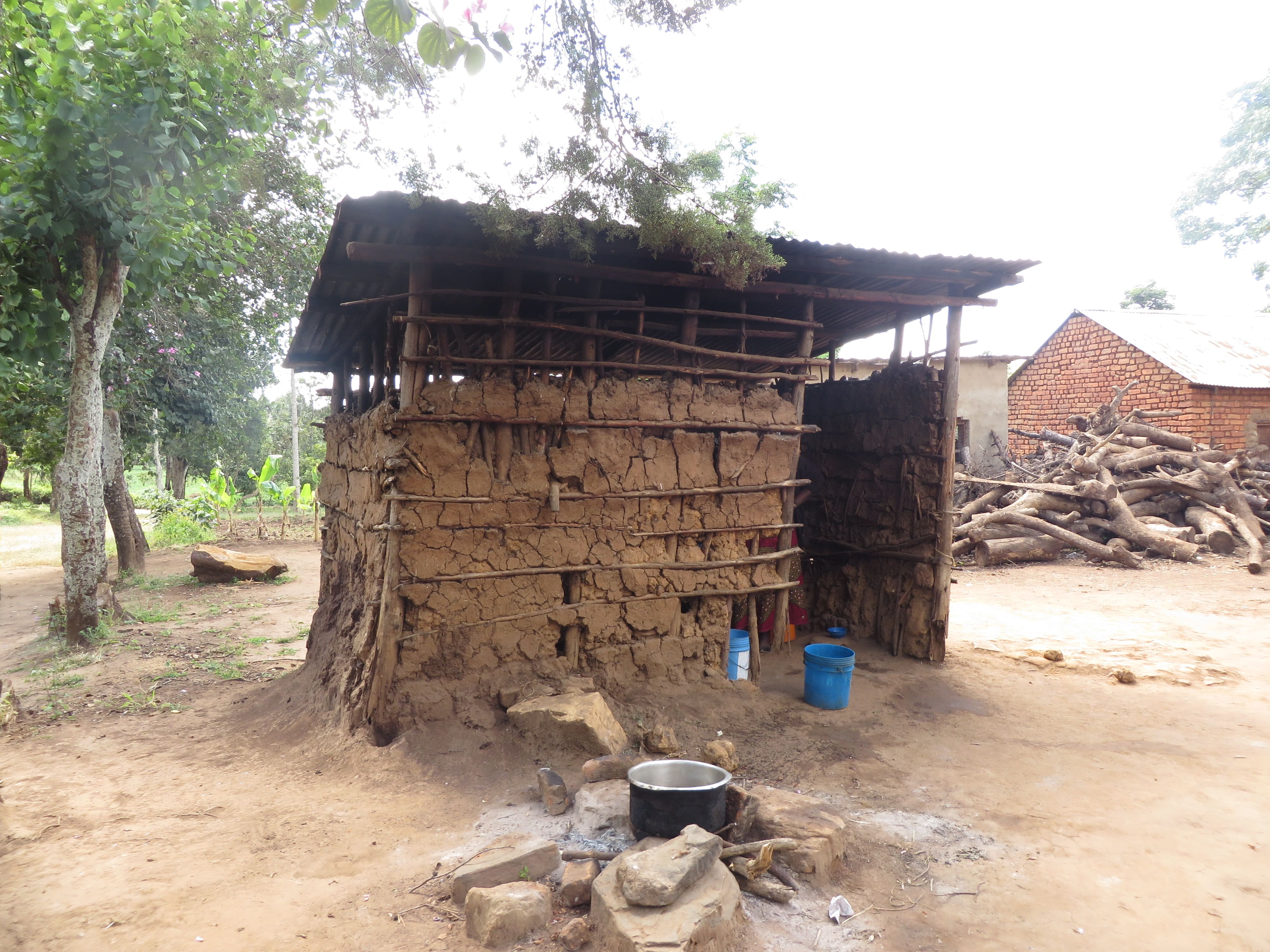
Slowly Karimu is replacing such shacks with real kitchens equipped with more efficient stoves, which eliminates much of the smoke inhaled by the kitchen staff, as well as large sinks for cleaning up and rooms for storage of the food.
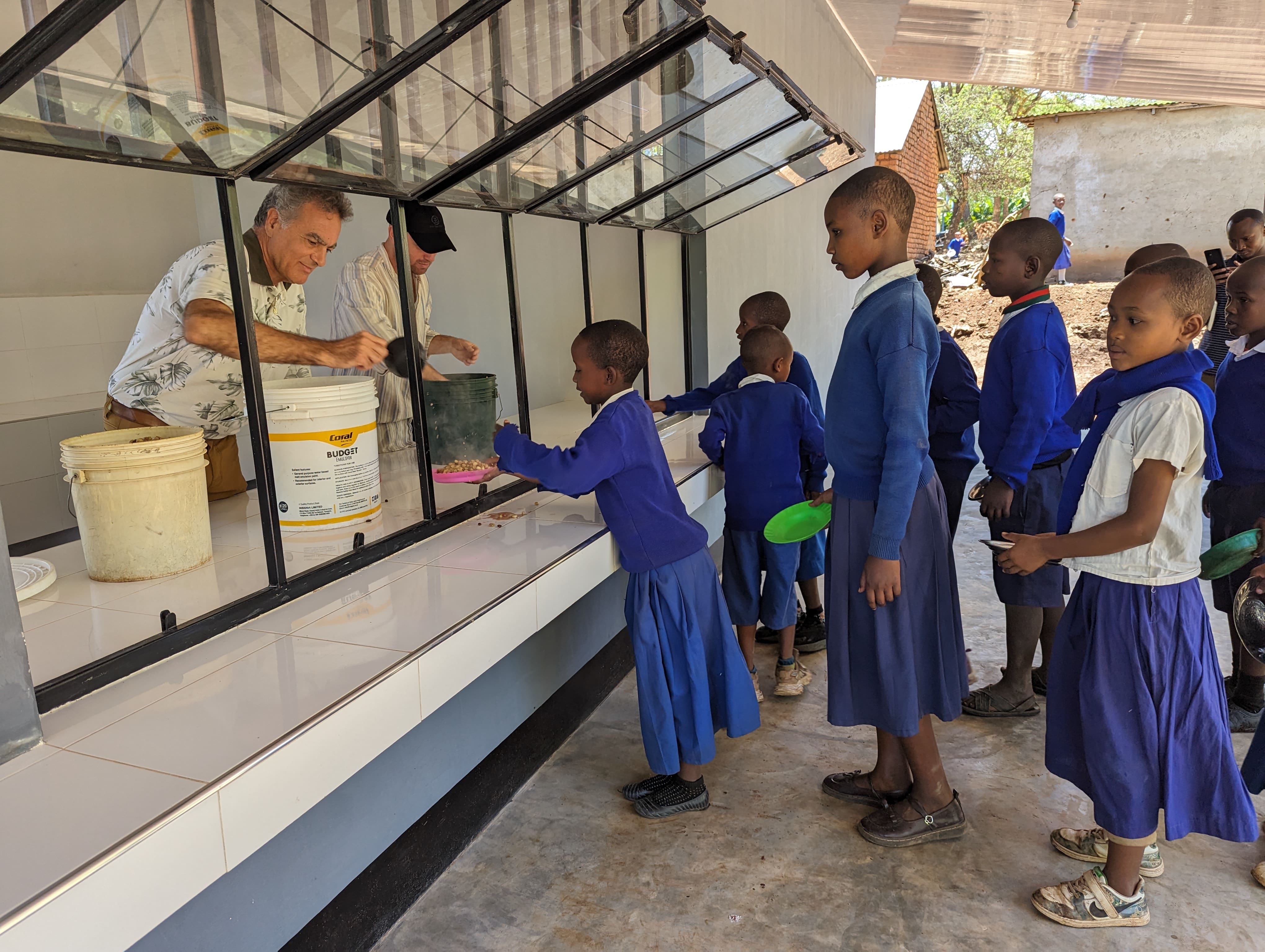
| The food served is Makande, a traditional food of the local tribes. |
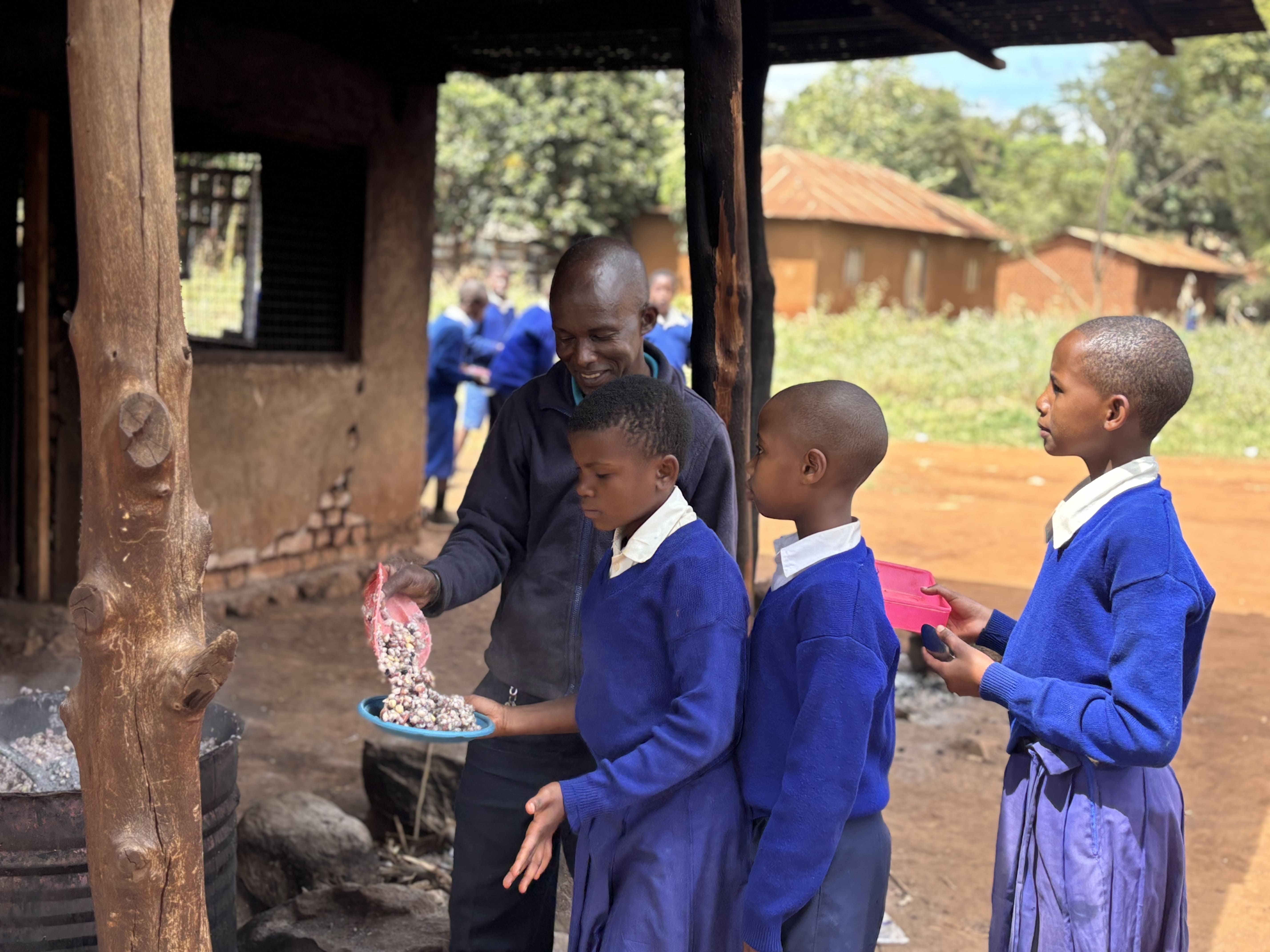 |
|
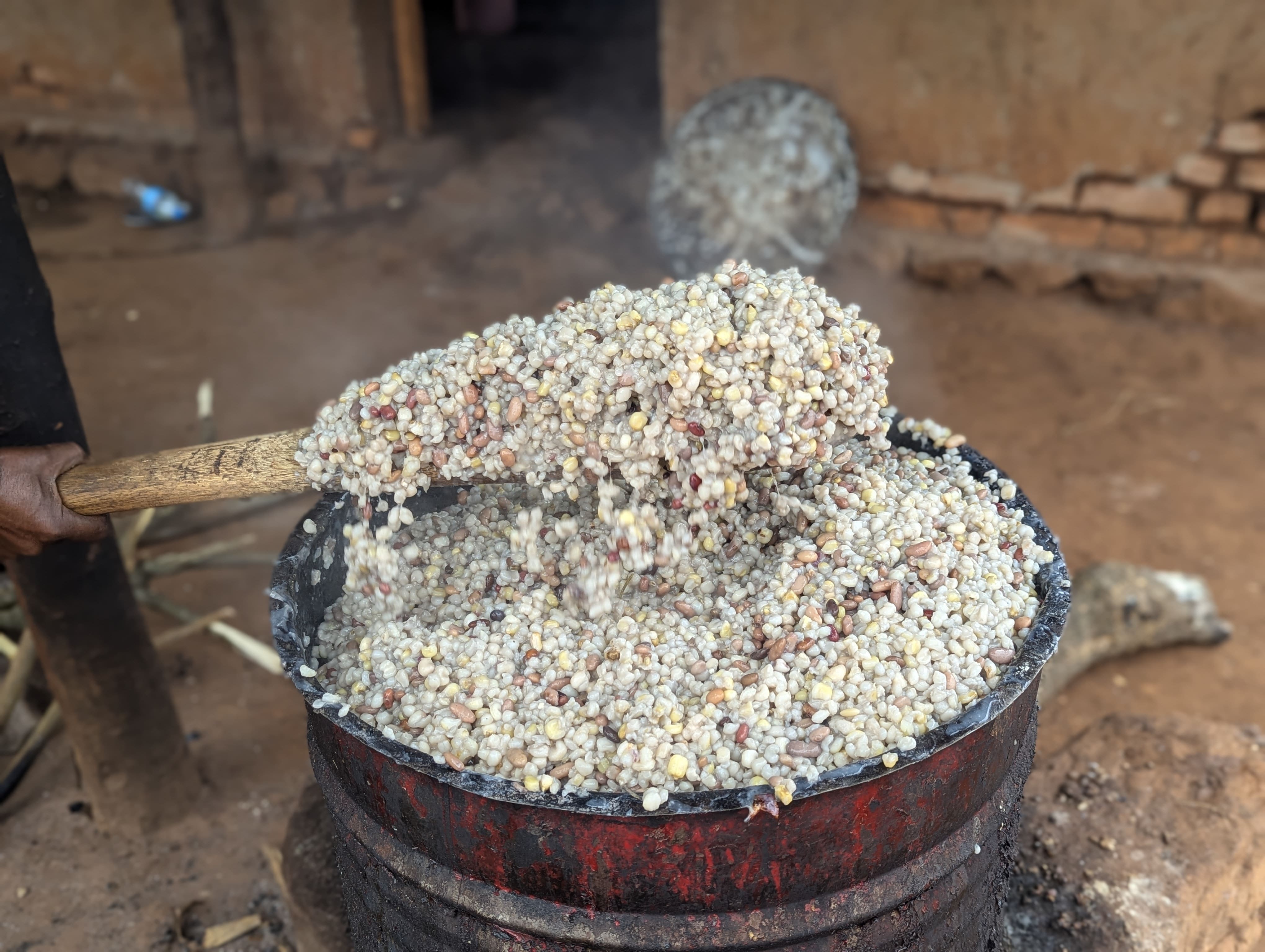 |
Makande combines the two most popular crops of the area, beans and corn (maize), into a delicious stew. The beans and corn are provided by the parents during harvest season and stored in the school. | |
|
I was volunteering for Karimu in the summer of 2024, waiting for our usual lunch to be served, when I saw Makande being prepared. It looked so tempting that I could not resist! I got my plate and went to the shack for a serving of Makande. It was hot, thick and delicious. |
|
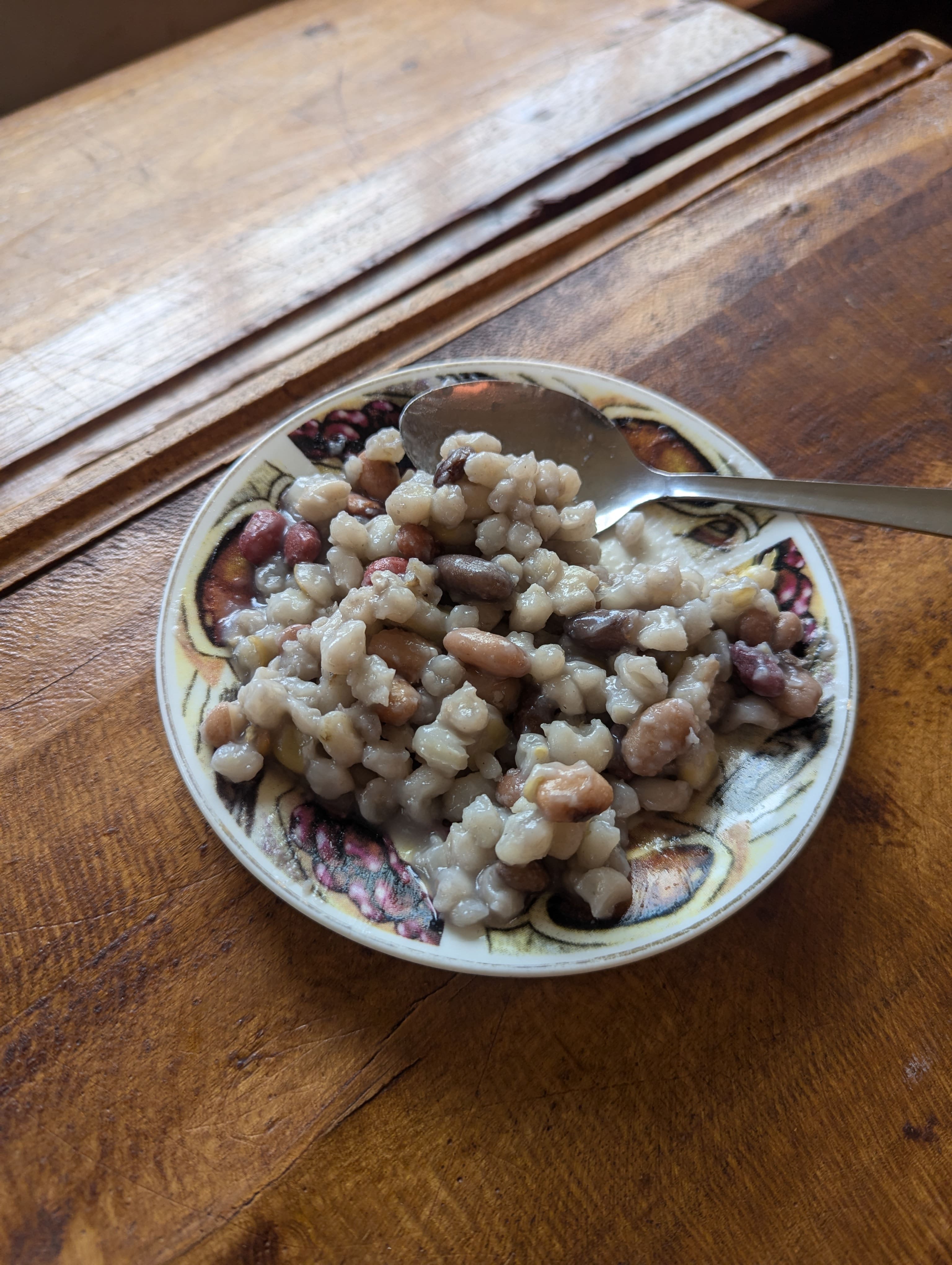 |
|
|
I ended up swapping the potatoes from our lunch for Makande, adding some vegetables and meat. Teachers at school add braised cabbage to their Makande. |
|
|
It was a hearty meal that kept me satisfied until the end of the day.
|
||



